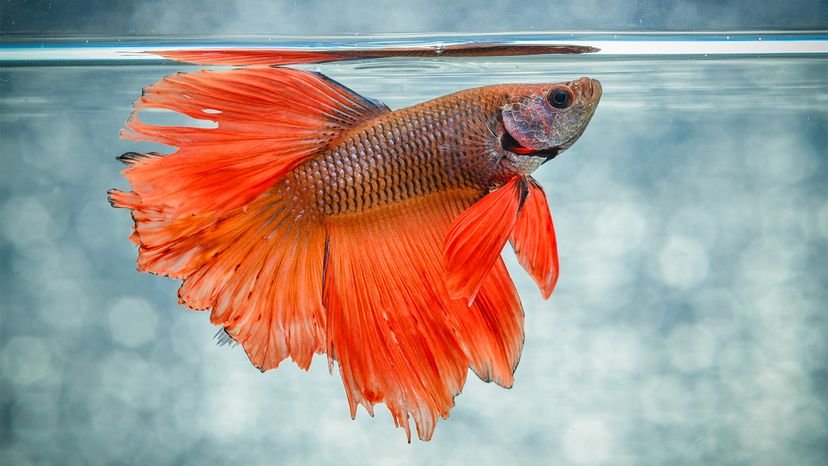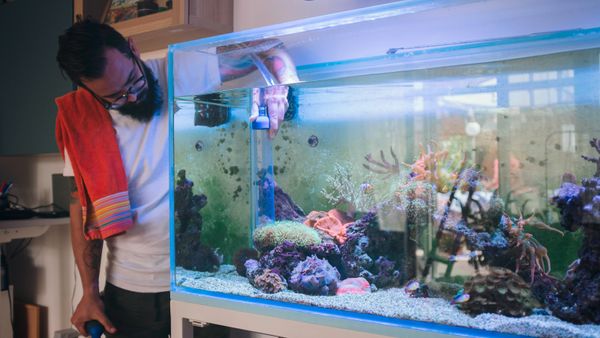
With its striking, bold colors and flashy fins, the betta fish is one of the more popular types of fish found in home aquariums. Unfortunately, myths abound about these intriguing creatures. One myth is that you just buy one, stick it in a bowl, feed it every day and that's it. But the truth is that they're not as hardy and easy to care for as many believe.
Betta fish — also called Siamese fighting fish — are tropical fish native to Southeast Asia. Especially prevalent in Thailand, wild bettas typically live in rice paddies and other shallow, stagnant bodies of water. Because these wetlands routinely shrink during the dry season, bettas hop from puddle to puddle, trying to find a reasonably deep pool where they can hang out until the rains return. Due to these conditions, bettas developed a labyrinth organ that gives them the ability to obtain some oxygen from the air as well as the water.
Advertisement
Bettas got the nickname "Siamese fighting fish" due to their territorial nature and inclination to fight. In 19th-century Thailand, the fish were bred for this purpose, and many fighting matches were held. Interestingly, the fish fights only lasted a few minutes before one of the two would either die or give up and retreat. Bettas were first introduced to the U.S. in the early 20th century.
While wild bettas generally have small fins and are dull green or brown, today's pet bettas have been bred to be quite colorful, with elaborate fins. With proper care, a pet betta can live for two to four years. But before you buy one, make sure you're aware of these five common fish tales about the beautiful betta fish.
Advertisement

